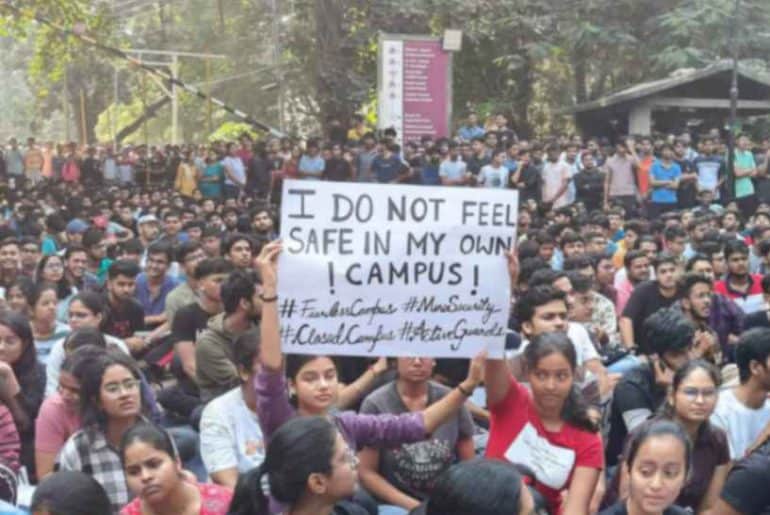Trigger Warning: Sexual Assault
Amidst growing concerns about student safety in Delhi schools, the alleged sexual assault of a five-year-old girl in her school bus casts a stark light on the issue, revealing the fragility of the safe and secure campuses boasted by prominent private schools in South Delhi.
In August 2024, a five-year-old girl, from South Delhi was sexually assaulted in her school bus, allegedly by a 19-year-old Kenyan national currently studying in Class 11. The student was only suspended on 7th February 2025 after 100-150 parents peacefully protested outside the school premises. It has also been reported that the alleged perpetrator’s mother is a counsellor to the Kenyan High Commission. The First Information Report (FIR), registered under the Protection of Children from Sexual Offences (POSCO) Act, confirmed that he holds diplomatic immunity, which necessitates a waiver for legal proceedings to proceed. The concerned authorities have been contacted as two more FIRs have been lodged against the same individual.
While the incident occurred last year, it has received little media attention, and the school’s name remained largely undisclosed until recently when an alumnus of the school posted about it on their Instagram account.
Speaking to DU Beat, the alumnus emphasised on the tactics used by the school to curtail the situation without dispensing justice to the victim. Instead, they have advised the parents to change their daughters’ school.
They [school administration] are using everything to stop it. Even teachers from different branches don’t know about this.” he added
The parents allege that the local police and the school deliberately mishandled the case.
When we first approached the school authorities regarding the matter, they told us the student involved was a 16-year-old Nigerian. Our daughter was called to the school to identify him, but he was absent that day and the teachers told us that he had gone for a field trip” said the parents of the student while talking to The Times of India
Since then, they repeatedly tried to seek justice through the school’s administration, but these efforts have been largely unsuccessful.
We are still waiting for justice …my daughter without any fault of her missed her school and the culprit freely was attending school and molesting more other girls which they reported to the teachers but they didn’t do anything.” the parents added
This trend of school administrations evading accountability is neither new nor isolated and sets a dangerous precedent where power and privilege outweigh social justice.
Yashika Jain











